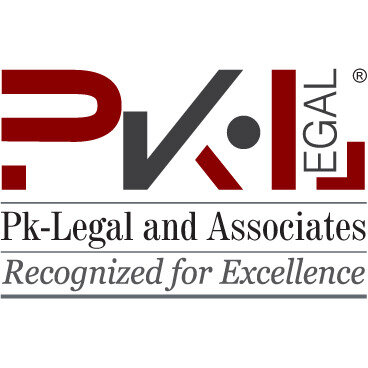Best Trusts Lawyers in Pakistan
Share your needs with us, get contacted by law firms.
Free. Takes 2 min.
Or refine your search by selecting a city:
List of the best lawyers in Pakistan

Bharucha & Co. (Advocates & Intellectual Property Attorneys-Pakistan)
15 minutes Free ConsultationPakistan Trusts Legal Questions answered by Lawyers
Browse our 1 legal question about Trusts in Pakistan and read the lawyer answers, or ask your own questions for free.
- proof of legal heir
- I am nominated by my uncle for his property after his death, he does not have any legal heir parents, sister, brothers, children, and wife. i need to get the succession certificate, but how can I prove to the court that there is no legal heir for my uncle now,... Read more →
-
Lawyer answer by SJ Law Experts
Thank you. SJ Law Experts, Islamabad [Advocates, Legal Advisors & Immigration Lawyers].
Read full answer
About Trusts Law in Pakistan
Trusts in Pakistan are governed primarily by the Trusts Act of 1882. This was one of the legal frameworks inherited from British colonial rule and continues to be in effect today. A trust is essentially a legal arrangement where a person, known as the 'trustor', transfers property to a trustee, who holds and manages it for the benefit of a third party, known as the beneficiary. Trusts can be used for a variety of purposes including estate planning, preserving family wealth, and charitable donations. Understanding the legal nuances of trust creation, management, and termination is crucial for those involved in this realm, whether they are the trustor, trustee, or beneficiary.
Why You May Need a Lawyer
Engaging a lawyer experienced in trusts can be vital for several reasons:
- To create and structure a trust in accordance with the law, ensuring all legal requirements are met.
- To manage disputes that may arise between beneficiaries and trustees, or among beneficiaries themselves.
- To modify or dissolve a trust if circumstances change, requiring amendments to the trust deed or its termination.
- To navigate the tax implications of a trust, which can be complex and require specialist legal and financial advice.
- To ensure compliance with ongoing duties such as the management of assets, reporting, and fiduciary responsibilities.
Local Laws Overview
The key aspects of trusts law in Pakistan include:
- The Trusts Act, 1882: This is the primary legislation, detailing how trusts can be created, managed, and dissolved.
- Public vs. Private Trusts: Public trusts are meant for public charitable purposes, while private trusts benefit specific individuals or groups.
- Legal Capacity: A trustor must have the legal capacity to form a trust, and be competent under the Contracts Act, 1872.
- Trust Deed: This is a mandatory document that outlines the terms and conditions of the trust, rights of trustees, and obligations towards the beneficiaries.
- Fiduciary Duty: Trustees have a fiduciary duty to act in the best interests of the beneficiaries and manage the trust's assets responsibly.
Frequently Asked Questions
What is a trust?
A trust is a legal arrangement in which one party, known as a trustee, holds property for the benefit of another party, known as the beneficiary.
Who can create a trust?
Any person who is competent to contract according to the Contracts Act, 1872 can create a trust in Pakistan.
What is a trustee?
A trustee is an individual or organization appointed to manage the trust property for the benefit of the beneficiaries as per the terms outlined in the trust deed.
What are the responsibilities of a trustee?
Trustees are responsible for managing the trust's assets, maintaining accurate records, and acting in the best interests of the beneficiaries.
How can I change or dissolve a trust?
Changes to or dissolution of a trust can generally be accomplished by fulfilling the conditions stated in the trust deed or by a court order.
Are there tax implications for establishing a trust?
Yes, creating a trust may have tax implications, and it's advisable to consult with a lawyer or tax expert.
Can trust properties be sold?
The sale of trust properties is governed by the trust deed, and must be carried out in alignment with the trust's purpose and beneficiaries' interests.
Can a trust be contested?
Yes, trusts can be contested if interested parties believe there has been a breach of terms, fraud, or undue influence in trust creation.
What is the role of a beneficiary?
Beneficiaries are individuals or entities entitled to receive benefits from the trust according to the deed's specifications.
How long does a trust last?
The duration of a trust is specified in the trust deed, though it can be subject to change based on fulfillment of the trust's purpose or legal determinations.
Additional Resources
For those seeking further information or assistance with trusts in Pakistan, consider these resources:
- The Pakistan Bar Council - a professional organization for legal practitioners in Pakistan.
- The Ministry of Law and Justice - offers insights into the legislative framework governing trusts.
- Legal advice clinics and non-profit organizations that provide pro-bono legal services.
Next Steps
If you need legal assistance in setting up or managing a trust:
- Consult with a reputable lawyer who specializes in trusts and estate planning.
- Gather all relevant documentation, including asset details and intended beneficiaries.
- Discuss your objectives with your lawyer to ensure the trust aligns with your goals.
- Stay informed about any changes in local laws or regulations that could impact your trust.
- Regularly review the trust deed and its performance with your lawyer to ensure it remains effective.
Lawzana helps you find the best lawyers and law firms in Pakistan through a curated and pre-screened list of qualified legal professionals. Our platform offers rankings and detailed profiles of attorneys and law firms, allowing you to compare based on practice areas, including Trusts, experience, and client feedback.
Each profile includes a description of the firm's areas of practice, client reviews, team members and partners, year of establishment, spoken languages, office locations, contact information, social media presence, and any published articles or resources. Most firms on our platform speak English and are experienced in both local and international legal matters.
Get a quote from top-rated law firms in Pakistan — quickly, securely, and without unnecessary hassle.
Disclaimer:
The information provided on this page is for general informational purposes only and does not constitute legal advice. While we strive to ensure the accuracy and relevance of the content, legal information may change over time, and interpretations of the law can vary. You should always consult with a qualified legal professional for advice specific to your situation.
We disclaim all liability for actions taken or not taken based on the content of this page. If you believe any information is incorrect or outdated, please contact us, and we will review and update it where appropriate.
Browse trusts law firms by city in Pakistan
Refine your search by selecting a city.
















